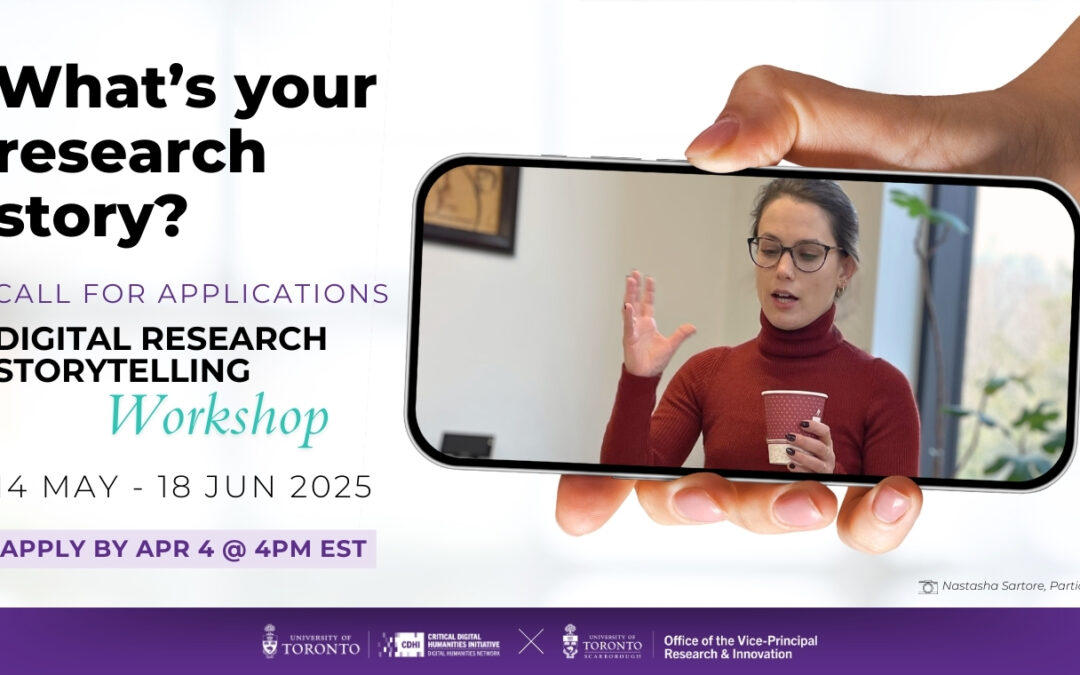Graduate
Graduate Opportunities
Tuition Support for DH@Guelph Summer Workshops
Deadline: Friday, April 25 at 4:00 pm EST Are you looking for more training in digital humanities tools and methods? CDHI is offering tuition support for graduate students, post-doctoral fellows, faculty, sessional instructors, and librarians to attend this training...

Call for Applications: Digital Research Storytelling Workshop, 14 May-18 Jun 2025
For more information on Digital Research Storytelling, please visit our Digital Research Storytelling Workshop page Applications are now open for our next six-week, in-person digital research storytelling workshop, running from May 14 to June 18, 2025, at the Sam...
Digital Humanities Summer Institute (DHSI) Tuition + Travel Support
The Digital Humanities Summer Institute (DHSI) is moving to Montreal for summer 2025. This year, DHSI will offer 33 courses over two weeks: Week One: 26-30 May 2025 Week Two: 02-06 June 2025 DHSI courses and lectures will take place at the Université de Montréal...
Graduate Student Fellowships
Note: CDHI’s Graduate Student Fellowship program is paused for 2024-25.
In collaboration with our divisional partners, we will be awarding 12 graduate fellowships ranging from semester-length RAships of $4000 to longer term $10,000 fellowships. These fellowships are designed to support graduate students working on faculty DH projects and/or, in some instances, to support PhD students in completing their dissertations.
Graduate Fellows (2023–2024)








Graduate Fellows (2022–2023)








